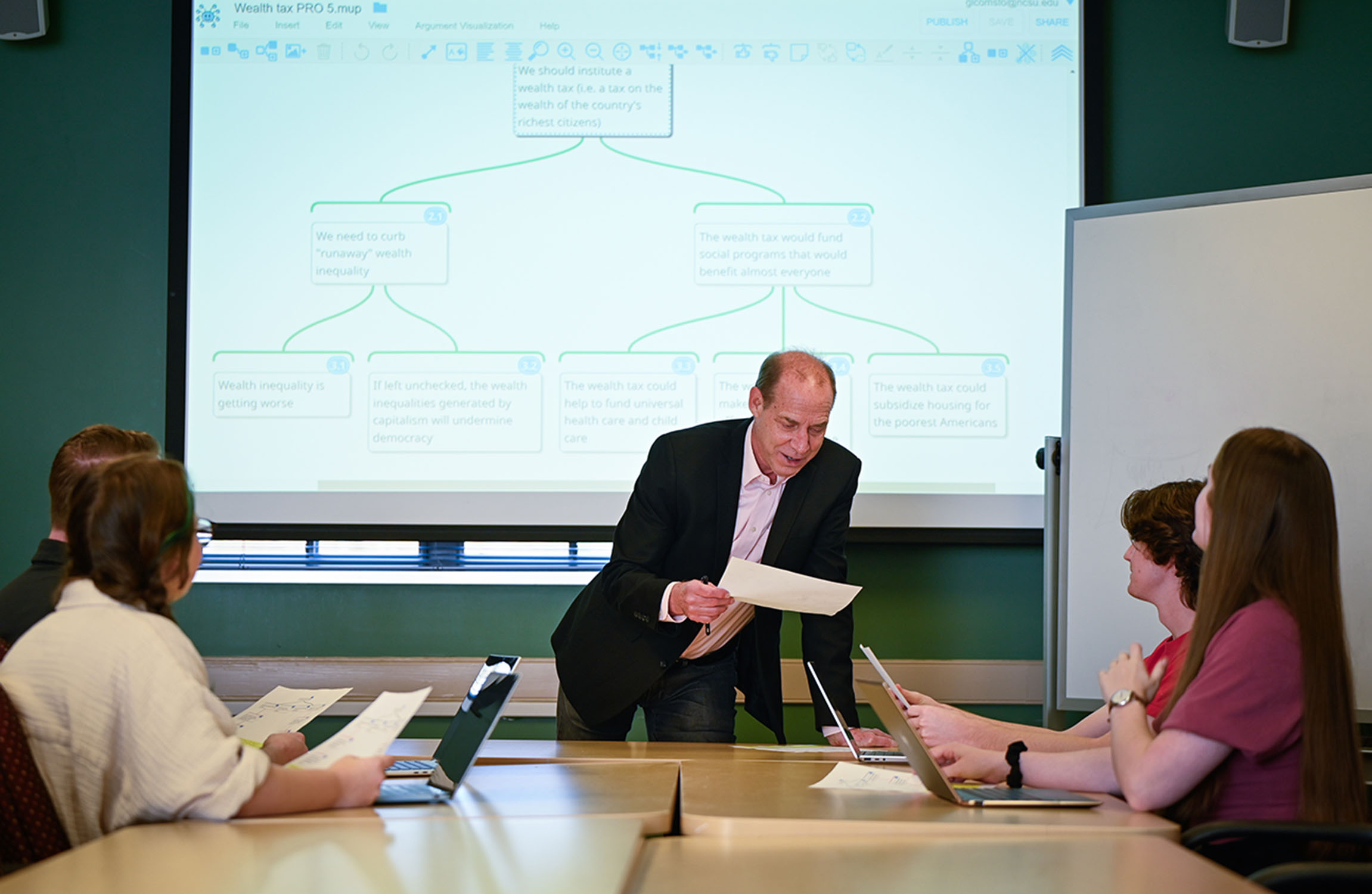3 Deans Collaborate to Help Students Design Their Lives After Graduation

A college dean’s life is full to overflowing already: wrangling over budgets and appointments, promoting and defending programs and professors, putting out fires and otherwise keeping their colleges running.
So why would three NC State college deans — representing Humanities and Social Sciences, Management and Design — band together to offer a workshop on planning the pivot from college to careers for upper-class students from across the university? Why would they spend considerable time over the summer planning a two-part program for juniors and seniors based on The New York Times bestseller, Designing Your Life?
“The three of us are fascinated with design thinking — which is a process that designers use to build and innovate — and how we can help students use those strategies and tactics to build their careers and their lives,” says Humanities and Social Sciences Dean Jeff Braden, who’s also an educational psychologist. “We all come at this challenge from different disciplines and professions, and we want to share our perspectives with undergrads from all colleges to help them build successful lives after graduation.”
The impetus for the workshop came from a visit by NC State representatives to Stanford University’s famous d.school, led by Dean of Design Mark Hoversten, where they explored the concept of design thinking and how it might be used at NC State. The three deans thought that by combining Hoversten’s expertise in design thinking, Management Dean Annette Ranft’s deep understanding of business organizations and careers, and Braden’s knowledge of psychology, they could offer distinct but complementary insights to students who are facing the challenge to design their careers and lives after college.
“Our goal is for students to leave with a candid self-assessment of where they are now, clear ideas about what they want from work and from life, and a set of strategies to prototype and build a career and a life that’s consistent with their goals,” says Braden.
Ranft says that all too often, students leave college with just their first job in mind. “Design thinking helps students focus on lifelong professional goals and the long-term journey ahead,” she says.
Beyond the workshops, Hoversten says he and his fellow deans “hope students will learn a tool — design thinking — that enables them to continually adapt to the changes in their lives.”
The deans encourage NC State faculty and staff to ask students to apply for one of the 30 slots in the program. “We all remember how paralyzed we felt about planning for our futures after college,” Braden says. “This is a way students can move from paralysis to a plan.”
Students must apply by Sept. 22, and will be notified by Sept. 25 if there’s room for them to participate. The program is free, including lunch. Sessions will be held on Oct. 13 and Oct. 27 from noon-4:30 p.m.
Questions? Contact Dean Braden.


